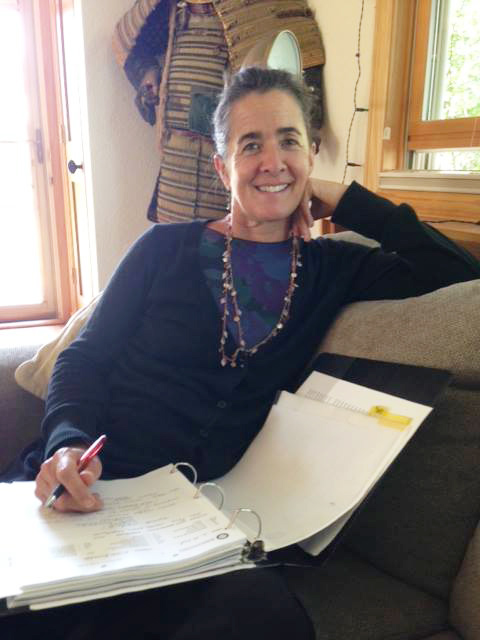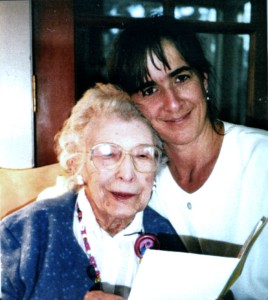
Although elders are sometimes overlooked and discounted, in my experience they invariably play a vital role within family and culture. Their many years of life experience along with an air of acceptance and availability, can offer younger people a sweet, rich presence that is seldom found elsewhere. And there is a unique humor that can come with old age.
The later years of life can be a fertile stage of transformation and refinement – a time that is ripe for opportunities of insight, relaxation, new perspectives, deeper self knowledge and genuine maturity. With the gradual failing of physical strength, another strength can come through: who one is. By that I mean less putting on a performance in order to connect with others and more valuing the simple act of being present.
My relationship with elders
I was close to my own parents when they moved through the phases of later life. Through that experience, I found that I have a lot of empathy and appreciation for elders and for their children and care givers, which inspired me to pursue professional eldercare.
Working with elders, I provide a relationship that is warm, friendly and consistent. Rather than imposing myself and my view on my clients, I work to empower and enable them to assume as much agency and authority in their world as they can.
 I use close listening and conversation to convey respect and positive regard. My conversations with older people are often about the most ordinary aspects of life. I use conversation assess and learn about each person’s world and life. These discussions are not only very enjoyable for my clients; they also support healthy cognitive functioning and the regulation of feelings.
I use close listening and conversation to convey respect and positive regard. My conversations with older people are often about the most ordinary aspects of life. I use conversation assess and learn about each person’s world and life. These discussions are not only very enjoyable for my clients; they also support healthy cognitive functioning and the regulation of feelings.
Collaboration is the key
Most of my eldercare includes collaborative work with the families of aging people, which may include their spouses. Working together with my clients’ support systems is often critical to their overall effective care.
It often happens, for example that an elder’s spouse (who is also an older person), suddenly finds herself or himself in the role of caretaker rather than partner. These caregivers lack the support necessary to meet the demands of their new roles. By providing one or more of the services that I offer, I can often relieve some of the weight that coms with the responsibility of caring for frailer people. When a family is becoming overburdened with caretaking duties, my services can help them to return to greater emphasis on natural family relationship and leisure, while I assume more of the work oriented tasks.
I believe that life, even at its most difficult times, offers opportunities for a sense of meaning, purpose and esteem.
Benefits of a contemplative approach
I first began training and formally practicing in mindfulness in the form of meditation in 1977. Since graduating in 1990 from Boulder’s Naropa Institute, where the roots of my study were based in the same contemplative practices, this orientation has informed the way I work with people and their families.
Contemplation begins at the very start of the invitation to work together. The process of inquiring about the client’s current state requires very thoughtful consideration. Details can be overlooked if one’s mind is too distracted of focused on short term fixes. Entering a professional relationship with an open, curious mind is essential to providing effective guidance.
As the relationship continues to develop, rather than proceeding as though everything has been revealed, I continually pay friendly close attention to the changes that come with time. The benefits of this process can’t be overstated; joining together in this engaging way provides strength, empowerment and relief.